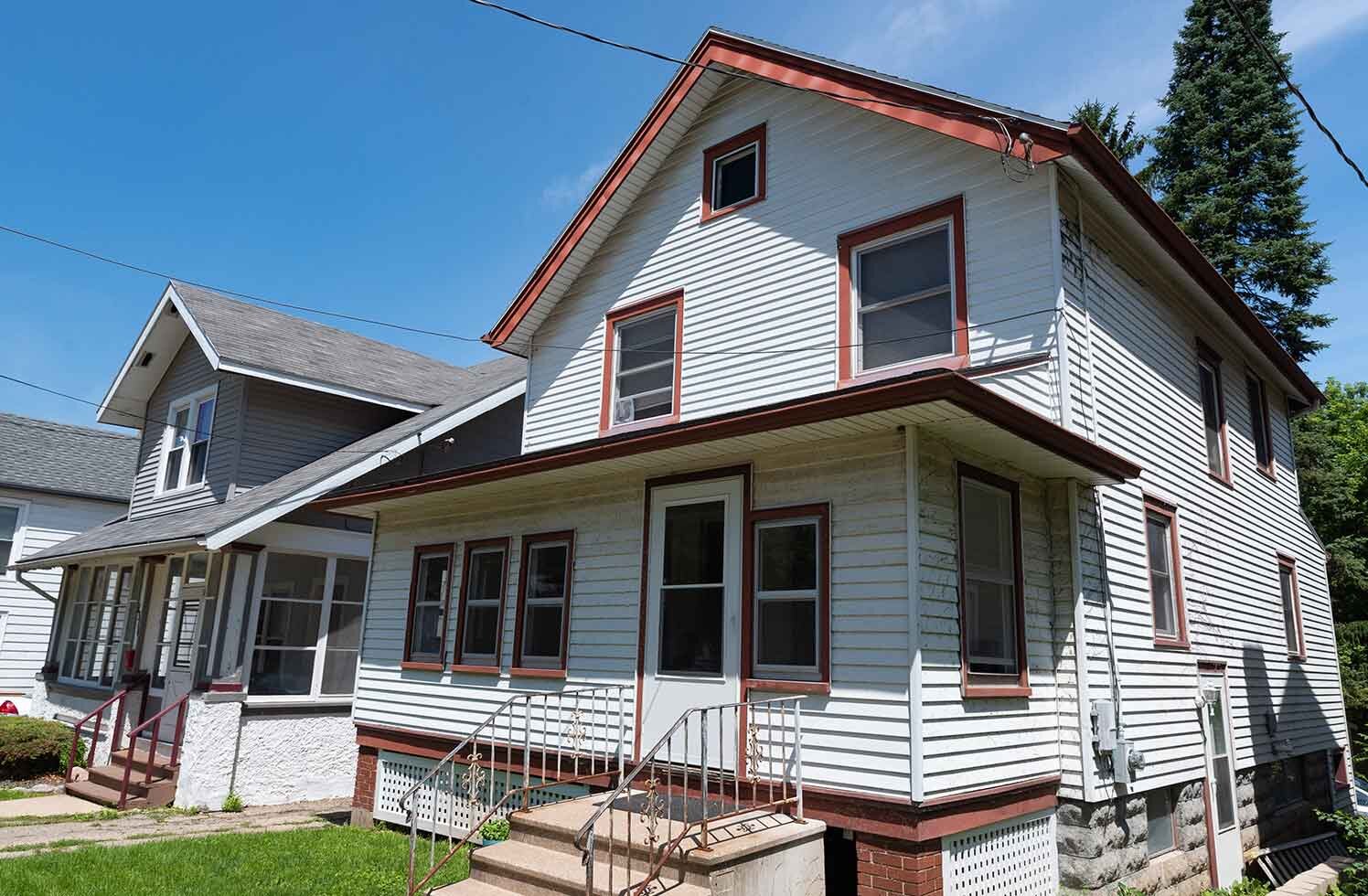Probate properties are a great opportunity for real estate investors and those looking for a discount, but what does it take for a homeowner dealing with the probate process to sell? This article is an informative resource for anyone dealing with the probate process. It will explain what is probate and how you can navigate the often tricky process to sell a property in probate while still making a profit.
What is Probate?
When someone passes away, their estate—everything they owned, including real estate, bank accounts, and personal property—must be legally transferred to their heirs or beneficiaries. This process is known as probate.
Whether a person died with a valid will (testate) or without one (intestate), probate ensures that debts are paid and assets are distributed fairly. If a will exists, it designates an executor to manage the estate. Without a will, the Court appoints an administrator to handle the process.
There are generally two types of probate:
- Informal Probate – This involves minimal court oversight. It usually occurs when a valid will exists, heirs are clearly identified, and no one contests the estate.
- Formal Probate – This process is more complex, requiring direct court involvement. It may be necessary when the will is contested, the estate has significant debt, or the original will cannot be located.
Because formal probate involves hearings, notices, and additional filings, it often takes longer and can feel more intimidating to families already dealing with loss.
Can a House Be Sold While in Probate?
Yes, it can. In fact, selling real estate is one of the most common steps in the probate process. A property in probate may be sold by:
- The Executor – Named in the will to oversee the estate’s distribution.
- The Administrator – Appointed by the Court when there is no will.
- The Court – In cases where there is no will and no heirs available to manage the estate.
Once the rightful representative is confirmed, they can petition to sell the property. This allows the estate to cover debts, taxes, and other obligations before distributing any remaining proceeds to heirs.
What Does it Take to Sell a House in Durham While in Probate?
An executor’s main responsibility is to protect the value of the estate and settle all legal and financial obligations. Sometimes this means selling a property, especially if:
- The estate owes outstanding debt to creditors, hospitals, or credit card companies.
- The property has been neglected and requires significant repairs.
- Back taxes are owed to the government.
- Heirs inherit a property they cannot afford to maintain.
For example, imagine an elderly woman passes away leaving two heirs and a home valued at $150,000. However, she also leaves behind $90,000 in unpaid medical and credit card debt. If the heirs cannot cover this debt themselves, the executor must sell the property. After paying off the debt, the remaining $60,000 is distributed evenly between the heirs.
Another situation may arise when the deceased left no will and no direct heirs. In this case, the Court can order the property to be sold, and the proceeds will go to extended relatives or, in rare cases, revert to the state.
Steps for Selling a House in Probate
If you own a property in North Carolina that is stuck in probate and you’re struggling to find a way to sell, there is hope! While probate can feel overwhelming, understanding the process can help you make informed decisions and move forward with confidence. Depending on local and state laws, the process of selling a probate property generally follows four key steps.
The first step is having an executor or administrator assigned, if there wasn’t one already named by the deceased. If you are appointed as the executor (or if you’re working with one who is in agreement), you have the authority to determine whether the property should be sold or kept. For example, if the estate owes outstanding debts, selling the property may be the most practical option. Or perhaps you inherited a house in another city or state that doesn’t make sense to maintain—selling can relieve you of that burden. Before any sale can happen, however, the property must be appraised. Once the valuation is complete, you’ll be able to petition the Court for permission to move forward with a sale—whether that means a For Sale By Owner (FSBO) listing, working with an experienced probate real estate agent, or selling directly to an investor for a faster transaction.
Decide How to Sell the Property:
This is often the most important decision you’ll make during the probate process. Each selling option comes with its own benefits and drawbacks. For example, listing on the open market could generate more profit but may take months to close, while selling to an investor may provide a much quicker sale with fewer contingencies. If multiple heirs are involved, this is also the stage where open communication can prevent disputes later on. Having a clear strategy upfront can save time, money, and unnecessary stress.

Valuation or Appraisal
First up is finding out how much that property is worth. To do this you’ll need a valuation of the land by a trusted professional, or you’ll need to hire a professional appraiser who understands the probate process in your state. In many areas, the Court requires the property to be sold for at least 90% of its appraised value, so accuracy is critical. Choosing an appraiser with probate experience ensures the valuation reflects true market conditions without overinflating the price. An inflated appraisal can cause delays, while an undervalued one may leave heirs with less than they deserve. This step sets the foundation for every decision moving forward, so take time to get it right.

Listing the House
Once the appraisal is complete, the executor and/or probate attorney must file a petition with the Court that declares the intent to sell. This filing includes the appraised value and the chosen method of sale—auction, traditional listing, or direct investor sale. When the petition is approved, you can officially market the property.
If you choose to work with a real estate agent, make sure they have probate experience, as this type of sale involves additional deadlines, disclosures, and legal requirements. Alternatively, some families prefer selling directly to a cash buyer or investor to avoid showings, repairs, and delays. Whatever path you take, ensure your team understands the unique challenges of probate real estate.at has experience with probate properties.

Offers
When offers begin to arrive, the executor must carefully evaluate each one. Some estates prioritize speed—especially if debts need to be settled quickly—while others may prefer to hold out for the highest possible sale price. The property’s condition also plays a role: a home in disrepair may appeal only to investors, while a move-in ready house could attract traditional buyers.
At this stage, it’s helpful to revisit your goals. Is the priority to maximize value for heirs, to close quickly, or to offload a difficult property with minimal hassle? Understanding these objectives makes it easier to choose the right buyer and move forward confidently.

Notice of Proposed Action
Once a buyer submits an offer, they must be notified that the transaction cannot close until the Court confirms the sale. This legal safeguard exists to protect creditors and heirs. Some buyers may hesitate at the extended timeline, but those familiar with probate are usually prepared for the process.
Clear communication is key here. Disclosing the additional steps upfront prevents surprises and ensures buyers remain engaged. If a buyer is patient and cooperative, the Court will review their offer and issue an order confirming the sale.

Bidding
In some cases, the Court may require the property to go through an auction-style confirmation hearing. This allows other interested buyers to step forward and submit higher bids, ensuring the estate receives fair market value. Probate auctions follow strict rules, and objections from heirs can stall or even cancel the process.
While this step can feel intimidating, it also provides transparency. All parties can see that the property was sold at a fair, court-approved price, reducing the chance of disputes later on.

Finalization of Sale
Once the Court confirms the winning bid or approves the offer, the final paperwork begins. The executor or attorney must file a final account and petition for distribution of proceeds. After the Court approves this, title documents are signed and the transfer of ownership is complete.
Although probate sales can involve delays and added paperwork, the end result is a legally binding sale that protects the rights of creditors, heirs, and buyers. With the right guidance—and a clear understanding of each step—you can successfully sell a probate property in North Carolina and move forward with peace of mind.
Who Buys Houses in Probate?
We do! Bright Home Offer is a direct house buying company that has built our reputation on buying houses for cash with less stress and less fees. Contact us today and get a competitive cash offer for that house or property that’s stuck in probate. We buy homes in any condition. We can help you with the convoluted process of selling a house in probate, making the process faster and as stress-free as possible.
Mistakes to Avoid When Selling a Probate Property

Moving Too Quickly
When a person passes away, their family may try to move as quickly as possible to sell the property so that they have time to grieve. Or, if there is debt that has interest that is compounding monthly, the executor or administrator will try to sell the house as quickly as possible by valuing it below market value to pay off the estate. Sometimes a too-fast sale can also happen when the house is in poor shape or needs major upgrades the beneficiaries do not want to pay for. They may undervalue the property so that they can sell it as-is.
While moving quickly can provide short-term relief, it may also mean leaving tens of thousands of dollars on the table. A rushed sale often prevents beneficiaries from exploring all available options—such as making minimal improvements to increase buyer interest, working with an investor who can close quickly without demanding repairs, or obtaining a professional appraisal to establish a fair starting price. Acting without a clear strategy may also create disputes among heirs, especially if some believe the home was sold for less than it was worth. Taking just a little extra time to gather information and evaluate offers can make a significant difference in both financial and emotional outcomes.

Not Completing a Real Estate Disclosure
Depending on what state you live in, Real Estate Disclosure laws can be almost as tricky as the probate process! These laws are a list of issues (such as lead paint or asbestos) that must be disclosed to the buyers about a home before closing on the property.
Most states require sellers and their agents to disclose in writing “material defects” about the home. According to the National Association of Certified Home Inspectors, material defects are “…a specific issue with a system or component of a residential property that may have a significant, adverse impact on the value of the property, or that poses an unreasonable risk to people. The fact that a system or component is near, at or beyond the end of its normal useful life is not, in itself, a material defect.”
Experienced real estate agents are great at navigating these tricky waters, but what if you inherited a house that you never lived in? How would you know what to disclose? In some states, the executor, person selling the property, and/or real estate agent may be exempt from filling out local real estate disclosure forms due to the property being in probate. This is because that person does not and did not live in the property, so would have no way of knowing what to disclose.
However, even if disclosure exemptions exist, that doesn’t mean you’re off the hook entirely. Undisclosed problems discovered after the sale—like mold, foundation issues, or a leaking roof—can lead to legal disputes if buyers feel misled. This is why many sellers of probate properties rely on home inspections or choose to work directly with professional home buyers who purchase “as-is” and accept the risks. If you are unsure of your state laws, someone who is experienced in probate real estate (whether it be a real estate agent or investor who has purchased probate properties in the past) will be able to help you navigate these legal waters. If looking into the latter option, be sure to sell your property directly to an experienced investor who doesn’t mind purchasing a property in probate and is willing to take the risk of purchasing a home from someone who is unable to give proper disclosure. You do have options!

Failing to Hire a Lawyer
We can not emphasize this enough—a knowledgeable real estate lawyer with experience in probate can help you navigate the process of probate much faster and easier than going at it alone! Not only will they know how to petition the Court so that you can finally put that property up for sale, but they’ll be able to guide you through the legal steps to sell that unwanted house or property with less hassle and tears. Even consulting will help ensure you aren’t missing the blind spots of the probate process.
In addition, a lawyer can act as a neutral third party to settle disagreements between heirs, clarify creditor claims, and protect you from costly mistakes like filing deadlines or missed notices to interested parties. Without legal guidance, you could unknowingly violate court procedures, delaying the sale for months or even years. Probate attorneys are also familiar with alternative solutions—such as requesting court approval for a direct sale or negotiating with creditors—that the average person would not know to pursue.

Waiting Too Long to Start the Probate Process
When someone loses a loved one, grief may cause us to put everything on hold while we process the loss of the deceased in our life. But what happens to the probate property during that time? Property taxes continue to add up, utility bills continue to come in, and the bank will want its monthly mortgage payments until the property is settled. Waiting too long can cause the estate’s expenses to add up fast, eating into the estate’s assets and leaving you in a difficult situation.
What many families don’t realize is that delays can also reduce buyer interest. A vacant home left unattended for months may develop maintenance issues, attract vandalism, or trigger code violations from the city. In extreme cases, prolonged neglect can cut the home’s value by a large margin, making it harder to sell later. Starting the probate process promptly doesn’t mean rushing through grief—it means protecting the estate’s value and giving yourself more control over when and how the property is eventually sold. The sooner the legal process is underway, the more options you’ll have when the time feels right to sell.
Who Buys Houses in Probate?
We do! Bright Home Offer is a direct house buying company that has built our reputation on buying houses for cash with less stress and less fees. Contact us today and get a competitive cash offer for that house or property that’s stuck in probate. We buy homes in any condition. We can help you with the convoluted process of selling a house in probate, making the process faster and as stress-free as possible.

